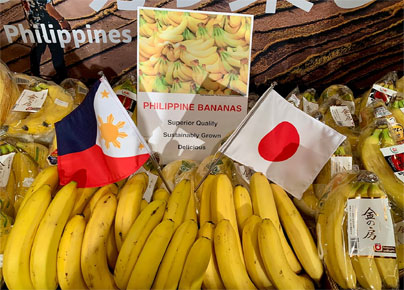Philippines: Banana exporters urge Japan to lower tariffs amidst stiff competition
2025-04-04

The Philippines remains the leading supplier of bananas to Japanese consumers, accounting for nearly 75 per cent of the market last year. This means three of four bananas consumed in Japan were grown in the Philippines. However, the Philippines' share of the Japanese banana market has decreased as competitors gain ground. Over a decade ago, the Philippines dominated the market with a 94 per cent share, but by 2024, this had dropped by almost 20 per cent.
The Philippines' market share loss has benefited other countries, such as Vietnam and Cambodia, and Latin American nations like Peru, which benefit from zero tariffs on their banana exports thanks to agreements with Japan. According to the Pilipino Banana Growers and Exporters Association Inc. (PBGEA), these competitors can export bananas to Japan without incurring tariffs, a significant advantage due to favourable trade agreements with the Japanese government. As a result, Filipino banana exporters may face declining orders from Japan in the coming years.
This situation could be remedied if Tokyo responds positively to the appeals of Philippine banana exporters to significantly reduce or eliminate tariffs on bananas under the Philippine-Japan Economic Partnership Agreement (PJEPA). For years, Manila and local fruit growers have urged Tokyo to eliminate tariffs on their products.
During the 5th PJEPA Joint Committee Meeting in Manila in 2016, the Philippines sought better terms for local agricultural products, including bananas, pineapples, yakitori chicken, and tuna. In 2021, Philippine officials expressed a willingness to negotiate for improved market access for local fruits, which currently face an 8 per cent tariff in the summer and an 18 per cent tariff in the winter when exported to Japan.
An official from the Department of Trade and Industry indicated that Tokyo may request lower tariffs on industrial products and the elimination of tariffs on vehicles with engines below 3,000 cc.
According to Article 161 of the PJEPA, the Philippines and Japan must conduct a general review of the agreement every five years, starting from 2011. Given the significant changes in the global trade environment and geopolitical landscape since then, fast-tracking the review of this first bilateral trade agreement could benefit local fruit growers and Japanese industries.









